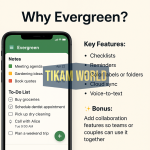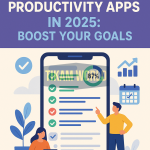How AI is Transforming Healthcare in 2025

Artificial Intelligence (AI) is revolutionizing healthcare in 2025, reshaping how we diagnose, treat, and manage health. From early disease detection to personalized medicine and streamlined hospital operations, AI is driving unprecedented advancements. With global healthcare spending projected to reach $10.7 trillion by 2027 (Statista), AI is a key player in making healthcare more efficient, accessible, and effective. This article explores how AI is transforming healthcare in 2025, diving deep into its applications, benefits, challenges, and future potential. Get ready for an engaging, unique, and comprehensive look at the AI-powered healthcare revolution!
Why AI in Healthcare Matters Now
AI’s ability to process vast datasets, recognize patterns, and make predictions is transforming healthcare at an astonishing pace. In 2025, AI is not just a tool but a game-changer, addressing critical challenges like rising costs, aging populations, and limited access to care. By leveraging machine learning, natural language processing, and computer vision, AI is empowering doctors, patients, and healthcare systems to achieve better outcomes. Let’s explore the key ways AI is reshaping healthcare today.
1. Early Disease Detection and Diagnostics
AI is revolutionizing diagnostics by identifying diseases earlier and more accurately than ever before, saving lives and reducing treatment costs.
AI-Powered Imaging
AI algorithms excel at analyzing medical images like X-rays, MRIs, and CT scans. For instance, Google’s DeepMind has developed AI that detects breast cancer with greater accuracy than human radiologists (Google Health). In 2025, AI tools are being used to spot early signs of:
- Cancer: Detecting tumors in mammograms or lung scans with precision.
- Neurological Disorders: Identifying Alzheimer’s or Parkinson’s through brain imaging.
- Cardiovascular Issues: Predicting heart attacks by analyzing ECG patterns.
Predictive Analytics
AI analyzes patient data—such as electronic health records (EHRs), wearables, and genetic profiles—to predict disease risks. For example, IBM Watson Health uses AI to flag patients at risk of diabetes or heart disease, enabling early interventions.
Real-World Impact
- Faster diagnoses, reducing delays in treatment.
- Improved outcomes for conditions like cancer and stroke.
- Cost savings by catching diseases before they progress.
2. Personalized Medicine: Tailoring Treatments to Individuals
AI is making healthcare more personal by tailoring treatments to each patient’s unique genetic makeup, lifestyle, and medical history.
Genomic Analysis
AI processes massive genomic datasets to identify mutations linked to diseases. Companies like Tempus use AI to match cancer patients with targeted therapies, improving survival rates.
Drug Response Prediction
AI predicts how patients will respond to medications, minimizing trial-and-error. In 2025, tools like Deep Genomics analyze genetic data to recommend optimal drug dosages, reducing side effects.
Wearable Integration
AI-powered wearables, like Fitbit or Apple Watch, monitor vital signs in real-time, providing personalized health insights. For example, AI can alert diabetic patients to adjust insulin based on glucose trends.
Benefits
- Higher treatment success rates.
- Reduced adverse reactions to medications.
- Empowered patients with data-driven health decisions.
3. Accelerating Drug Discovery and Development
Developing new drugs is time-consuming and costly, often taking over a decade and billions of dollars. AI is slashing these timelines and costs in 2025.
AI in Drug Design
AI simulates molecular interactions to identify promising drug candidates. For instance, BenevolentAI uses AI to discover new treatments for diseases like ALS, speeding up the process from years to months.
Clinical Trial Optimization
AI streamlines clinical trials by identifying ideal participants and predicting outcomes. In 2025, platforms like Antidote use AI to match patients with trials, reducing recruitment time.
Vaccine Development
AI played a pivotal role in COVID-19 vaccine development, and in 2025, it’s accelerating vaccines for emerging diseases. AI models analyze viral mutations to design effective vaccines faster.
Impact
- New treatments reach patients sooner.
- Lower drug development costs, making medications more affordable.
- Faster responses to global health crises.
4. Streamlining Healthcare Operations
AI is transforming the backend of healthcare, making hospitals and clinics more efficient and cost-effective.
Workflow Automation
AI automates administrative tasks like scheduling, billing, and record-keeping. For example, Olive uses AI to handle repetitive tasks, freeing healthcare staff for patient care.
Predictive Resource Management
AI forecasts patient admissions and resource needs, helping hospitals manage beds, staff, and equipment. In 2025, systems like Epic’s AI tools optimize hospital operations during peak times, such as flu season.
Telemedicine Enhancement
AI-powered chatbots and virtual assistants, like those from Babylon Health, triage patients and provide initial consultations, reducing strain on healthcare systems.
Benefits
- Reduced administrative costs, saving billions annually.
- More time for doctors to focus on patients.
- Improved access to care through virtual platforms.
5. Mental Health Support and Monitoring
Mental health is a growing concern, and AI is stepping in to provide scalable, accessible solutions in 2025.
AI Chatbots and Therapy
AI-powered chatbots like Woebot offer cognitive behavioral therapy (CBT) through conversational interfaces, supporting patients with anxiety or depression. These tools are available 24/7, making mental health care more accessible.
Sentiment Analysis
AI analyzes speech patterns, social media activity, or wearable data to detect early signs of mental health issues. For example, Ellipsis Health uses AI to identify depression through voice analysis.
Crisis Intervention
AI systems can flag individuals at risk of self-harm by analyzing online behavior, enabling timely interventions. In 2025, this is saving lives in communities worldwide.
Impact
- Increased access to mental health resources, especially in underserved areas.
- Early detection of mental health issues.
- Reduced stigma through discreet, AI-driven support.
6. Enhancing Surgical Precision with AI and Robotics
AI-powered robotics are transforming surgery, making procedures safer and more precise in 2025.
Robotic Surgery
Systems like the da Vinci Surgical System use AI to assist surgeons, offering enhanced precision and smaller incisions. AI analyzes real-time data to guide robotic arms during complex procedures.
Pre-Surgical Planning
AI creates 3D models from patient scans, helping surgeons plan operations with pinpoint accuracy. This reduces complications and speeds up recovery.
Remote Surgery
With 5G and AI, surgeons can perform procedures remotely using robotic systems, bringing expertise to remote or underserved areas.
Benefits
- Minimally invasive surgeries with faster recovery times.
- Reduced surgical errors and complications.
- Expanded access to high-quality surgical care.
Challenges of AI in Healthcare
While AI’s potential is immense, its adoption in healthcare faces significant hurdles in 2025.
1. Data Privacy and Security
AI relies on vast patient data, raising concerns about privacy and breaches. The Health Insurance Portability and Accountability Act (HIPAA) sets strict standards, but cyberattacks remain a risk.
2. Bias in AI Models
AI systems trained on biased data can produce inaccurate or discriminatory outcomes. For example, early COVID-19 AI models underestimated risks for certain demographics, highlighting the need for diverse datasets.
3. Regulatory Hurdles
AI tools must meet rigorous regulatory standards, like those set by the FDA. In 2025, navigating these approvals remains a bottleneck for AI deployment.
4. Ethical Concerns
AI’s role in decision-making raises ethical questions. Should AI override a doctor’s judgment? Who’s liable if an AI system fails? These debates are ongoing.
5. Cost and Accessibility
Implementing AI is expensive, and smaller hospitals or developing regions may struggle to adopt it, widening healthcare disparities.
Addressing these challenges requires collaboration between tech companies, regulators, and healthcare providers.
The Future of AI in Healthcare: What’s Next?
In 2025, AI is just scratching the surface of its potential in healthcare. By 2030, expect even greater advancements:
- General AI in Medicine: AI systems approaching human-level reasoning could assist in complex diagnoses.
- Global Health Equity: AI-powered telemedicine and low-cost diagnostics will reach underserved regions.
- Integration with Other Tech: AI will combine with 6G, quantum computing, and genomics for breakthroughs like real-time gene editing.
To prepare, healthcare systems must invest in AI infrastructure, train staff, and prioritize ethical guidelines.
FAQs
1. How is AI improving healthcare in 2025?
AI is enhancing diagnostics, personalizing treatments, accelerating drug discovery, streamlining operations, supporting mental health, and improving surgical precision.
2. Is AI in healthcare safe for patients?
AI is generally safe when rigorously tested and regulated, but risks like data breaches and biases must be addressed to ensure patient safety.
3. Can AI replace doctors?
No, AI complements doctors by handling repetitive tasks and providing insights. Human judgment remains essential for empathy and complex decision-making.
4. How does AI protect patient privacy?
AI systems must comply with laws like HIPAA, using encryption and anonymization to safeguard data. However, robust cybersecurity is critical.
5. Will AI make healthcare more affordable?
AI can reduce costs by streamlining operations and accelerating drug development, but high implementation costs may limit access in some regions.
Conclusion
In 2025, AI is transforming healthcare in ways once unimaginable, from detecting diseases early to personalizing treatments and enhancing mental health support. Its ability to save lives, cut costs, and improve access is unparalleled, but challenges like privacy, bias, and regulation must be addressed. As AI continues to evolve, it promises a future where healthcare is more precise, equitable, and efficient. Stay informed about this revolution and explore how AI is shaping a healthier world.









